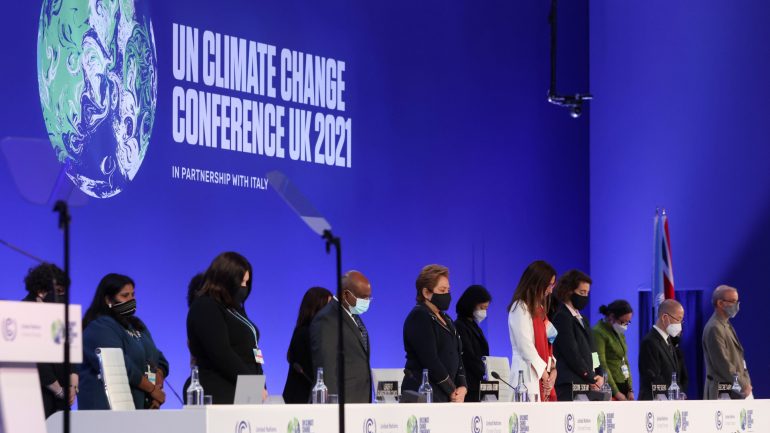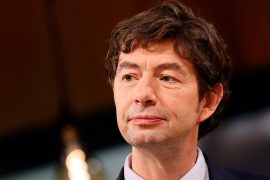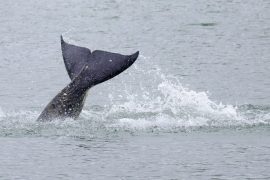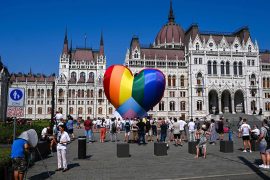Status: October 31, 2021 at 2:15 pm.
The World Climate Conference has begun in Glasgow, UK. Initially, the UN climate chief Espinosa warned against “extinction of its own”. The Pope urged the world community to finally hear the “call of the earth”.
The United Nations World Climate Conference began in Glasgow with high hopes from the governments of the world. Government representatives from nearly 200 countries spend two weeks discussing the more ambitious global climate policy.
At the outset, UN climate chief Patricia Espinosa called for significantly greater ambition from the international community in the fight against global warming. The Executive Secretary of the Framework Convention on Climate Change (UNFCC) said that climate protection is at “a turning point in history”. “Either we focus on a rapid and massive reduction in emissions to achieve the 1.5° target. Or we accept that humanity faces a bleak future on this planet.” Continuing it with emissions of climate-damaging greenhouse gases would be tantamount to “investing in our own extinction.”
Because emissions continue to rise, more climate protection commitments are needed, especially from major G20 economic powers, Espinosa said. With this there should be more support for poor countries. It is not only about the US$100 billion already promised for climate protection in developing countries, but also about mobilizing trillions. A “new era of resilience” must be started. Negotiators encouraged them to think outside the box and question established negotiating points.
“Let’s make sure Glasgow delivers on the promise made by Paris,” said Alok Sharma, who was recently elected president of the COP 26 summit. He said the window to reach the 1.5 degree target is closing. Floods, cyclones and record temperatures increased. The world is changing for the worse and humanity can only fight it together. “This is our last big hope of keeping the COP as 1.5 degrees as possible. This international convention has to deliver,” Sharma said.
Schultz: “The New Phase of Climate Cooperation”
Federal Environment Minister Svenja Schultz also called on the international community to prepare an ambitious joint climate plan. “In Glasgow, the world community can and should finally clarify open questions about the rules of international cooperation in climate protection. If this is successful, Glasgow could usher in a new phase of international climate cooperation,” Schultz said at the start of the conference.
Now it should be a matter of focusing on concrete implementation of the climate goals. “It’s urgently needed: The world is still a long way from being on a 1.5-degree course,” Schultz said. This means that the primary goal of the signatory states is to keep global warming to less than 1.5 degrees compared to the pre-industrial era. Six years ago at the World Climate Conference in Paris, the states made a binding agreement on this.
Mueller: “Climate Catastrophe Can Be Prevented”
Acting Federal Development Minister Gerd Müller also addressed the global community: “The global climate catastrophe is preventable. We have the technology and the knowledge, the deciding factor is the global willingness to act decisively.” Müller said, “Industrialized countries had “the main responsibility for ecological, social, global development change”.
British Prime Minister Boris Johnson said he expected an “atmosphere of responsibility and ambition” to keep the Paris target alive.
Pope: “The Cries of the Earth and the Poor” Must Hear
Pope Francis called for “concrete results” from the UN climate summit. The “cry of the earth and the poor” must finally be heard, he said in St. Peter’s Square in Rome. This is the only way to give concrete hope for the generations to come.
The British heir to the throne, Prince Charles, called on the heads of state and government of G20 countries to listen to the “desperate voices” of young people in the climate crisis. The world climate summit in Glasgow is “really the last chance” for Earth, he said in Rome, where the G20 summit ends today.
Thunberg defends radical protest
Environmental activist Greta Thunberg accused COP host Great Britain of not taking climate protection seriously. “If you see a pattern of political decisions that always avoid taking real action, you can draw conclusions from that pattern. That is, climate protection isn’t really a top priority right now,” she said. Its background was the announcement by the British government to reduce taxes on domestic flights. Furthermore, despite protests, London remains adamant on expanding a new oil field in the North Sea.
Thunberg also defended radical forms of protest in the fight for more climate protection. The BBC’s Swede said that sometimes it is necessary to disturb some people in order to draw attention to subjects. “If some people had not been offended, the school strike movement would not have been so famous,” Thunberg said. Of course, it is important that no one is injured during the demonstrations.
About 25,000 people are expected to attend the climate summit, including thousands of journalists and climate protection activists. One of the items on the agenda in Glasgow is the assessment of voluntary national climate goals by 2030 that the states submitted ahead of the conference. In addition, climate diplomats want to negotiate transparency rules, reporting obligations and the structure of international trade in CO2 emissions rights. Financial aid for poor countries in the fight against global warming should also be discussed.

Introvert. Proud beer specialist. Coffee geek. Typical thinker. Pop culture trailblazer. Music practitioner. Explorer.





